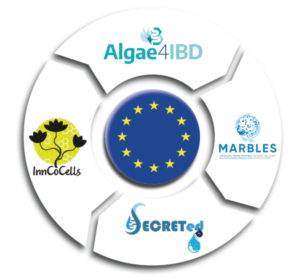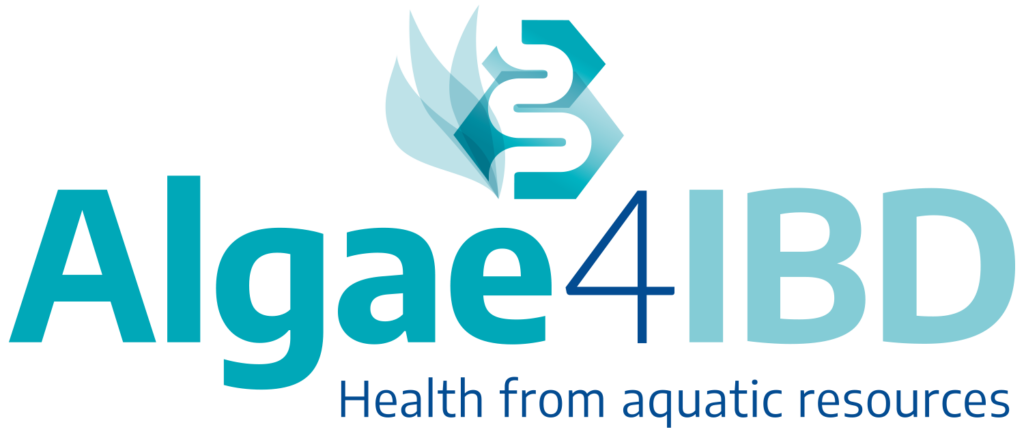Nature contains many compounds that can improve our health and that of our planet
Plants, bacteria, and algae produce a rich repertoire of natural compounds. Many of these molecules can be beneficial for us. We can use them to nurture our body with natural cosmetics or with food that is enriched with health-beneficial compounds. And some can aid in the treatment of diseases, such as the antibiotic penicillin or the anticancer drug Taxol. In fact, most of today’s medicine derives from natural products.
Taking to nature to find new compounds for consumer products and novel medicine is as important as ever. However, sourcing nature for these compounds is an expensive and time-consuming task. It also has to be done sustainably. To support scientists in this undertaking the European Commission rolled out a funding scheme with more than 30 million Euro (call FNR-11-2020) as part of the EU Horizon 2020 Research and Innovation Programme.
Aside from Algae4IBD, three other research projects are now funded under that scheme. Together, these projects are looking for natural compounds for a broad range of fields: medicine, food, agriculture, and cosmetics.
Exploring nature's treasure chest with individual goals
At Algae4IBD, we are studying algae to identify the strains which produce pain-relieving, anti-inflammatory, pre – and antibiotic compounds. These molecules can then be developed into smart food and new medicines to treat pain, inflammation, and inflammatory bowel disease.
The scientists of the InnCoCells project are looking for new cosmetic ingredients that can nurture the microbiome of the skin or heal skin inflammation. They prospect plants, but also residues from the agri-food industry to give value to what is considered waste.
In the project MARBLES, researchers are focusing on marine microbiomes, particularly those of sponges, microalgae and fish. They all rely on their microbiomes and bioactive molecules for protection against diseases. The MARBLES researchers are interested in molecules with antifungal or antimicrobial properties. These have potential to be used for disease protection in fish aquaculture, in agricultural crops and potentially in human health.
The scientists of the SECRETed project aim to develop molecules with tailor-made properties that find numerous applications in oncology, cosmetics, pharmaceutics, and agriculture. They aspire to identify unexploited compounds in existing and modified marine and extremophilic microorganisms. To do this, they employ experimental machine learning and process development activities.
The AIMS-cluster
We now formed a cluster: the AIMS-cluster. In this collaboration, we want to share our know-how and tackle common challenges. This fruitful exchange will benefit the individual outcomes of each project and increase its reach. Find more info on the AIMS-cluster here.


